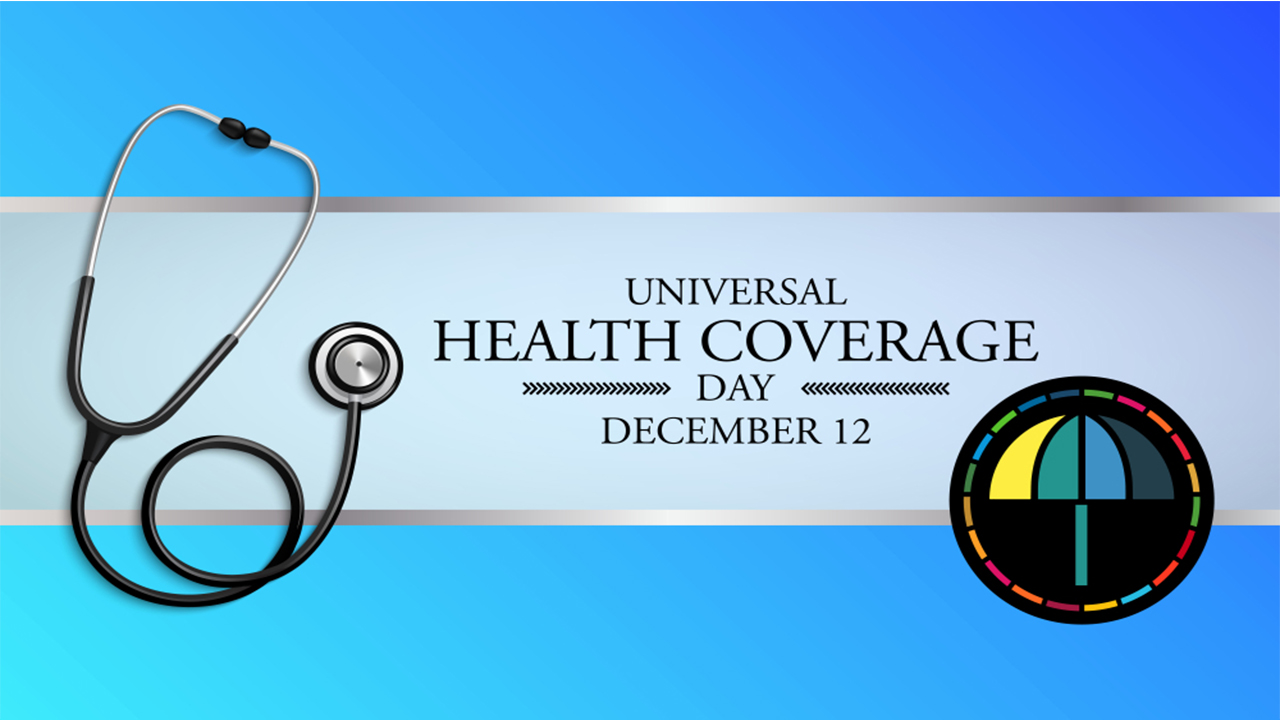Universal health coverage (UHC) ensures all people, everywhere, can get the quality health services they need without financial hardship. Every 12th of December is the anniversary of the first unanimous United Nations resolution calling for countries to provide affordable, quality health care to every person, everywhere. It advocates worldwide mobilization on UHC Day to call for strong, equitable health systems that leave no one behind: Health for All.
UHC Day has become the annual rallying point for the growing global movement for health for all. Each year on 12.12, voices are raised to share the stories of the millions of people still waiting for health, to call on leaders to make bigger and smarter investments in health and to remind the world that health for all is imperative for the world we want.
This year, against the backdrop of a global pandemic that has claimed millions of lives, the case for universal health coverage is clear.
This year’s UHC Day theme reminds us of our most urgent priority: HEALTH FOR ALL: PROTECT EVERYONE.
To end this crisis and build a safer and healthier future, we must invest in health systems that protect us all—now.
Universal health coverage
Universal Health Coverage (UHC) means everyone can access the quality health services they need without financial hardship.
- WHO: All people, including the poorest and most vulnerable.
- WHAT: Full range of essential health services, including prevention, treatment, hospital care, and pain control.
- HOW: Costs shared among the entire population through pre-payment and risk-pooling, rather than shouldered by the sick. Access should be based on need and unrelated to the ability to pay.
UHC is a means to promote the human right to health. Universal health coverage has been included in the new Sustainable Development Goals adopted by the United Nations.
The United Nations Sustainable Development Goals that all UN Member States have agreed to try to achieve Universal Health Coverage by 2030. This includes financial risk protection, access to quality essential health-care services, and access to safe, effective, quality, and affordable essential medicines and vaccines for all.
COVID-19 struck only a few months after world leaders endorsed of the landmark Political Declaration on UHC - committing to accelerate efforts towards the achievement of universal health coverage so that everyone can access the health services they require, when and where they need them, without suffering financial hardship as a result.
The pandemic is testing our resolve to deliver health for all and threatens to undo decades of progress. It has disrupted the delivery of essential health services in many countries, stretched resources to the limits, and revealed the impact of decades of underinvestment in primary care and essential public health functions.
A series of pulse surveys reveal slow-downs and setbacks in delivering key health services and reaching globally agreed targets. Initiatives to boost immunization, sexual and reproductive health, maternal and child health care for the aging, and to end diseases have all been negatively impacted.
This puts additional pressure on vulnerable population groups with unmet health needs. Even before the crisis, at least half of the world’s population did not have full coverage of essential health services, and about 100 million people were pushed into extreme poverty because they have had to spend on health care beyond their ability to pay.
The United Nations has adopted 17 sustainable development goals for eliminating poverty and building a more resilient planet. One of those goals includes providing universal health coverage.
A coalition of more than 700 organizations in 116 countries mark 12 December as Universal Health Coverage day, urging world leaders to deliver on promises to achieve universal health coverage.
The goal of universal health coverage is to ensure that all people obtain the health services they need without suffering financial hardship when paying for them. This requires:
- A strong, efficient, well-run health system;
- A system for financing health services;
- Access to essential medicines and technologies;
- A sufficient capacity of well-trained, motivated health workers.
Dr. Margaret Chan, WHO Director-General: “I regard universal health coverage as the single most powerful concept that public health has to offer. It is inclusive. It unifies services and delivers them in a comprehensive and integrated way, based on primary health care.”
The global coalition of leading health and development organizations worldwide is urging governments to accelerate reforms that ensure everyone, everywhere, can access quality health services without being forced into poverty. The coalition emphasizes the importance of universal access to health services for saving lives, ending extreme poverty, building resilience against the health effects of climate change, and ending deadly epidemics such as Ebola.
Now that we have revolved around one year since the first COVID-19 cases, we must say adieu to the status quo that got us here and settle for more importantly strong health systems that Protect Everyone today and always.
References:
https://www.who.int/life-course/news/events/uhc-day/en/
https://universalhealthcoverageday.org/

 Now that we have revolved around one year since the first COVID-19 cases, we must say adieu to the status quo that got us here and settle for more importantly strong health systems that Protect Everyone today and always.
Now that we have revolved around one year since the first COVID-19 cases, we must say adieu to the status quo that got us here and settle for more importantly strong health systems that Protect Everyone today and always.









.jpeg)







.jpeg)

.jpg)










